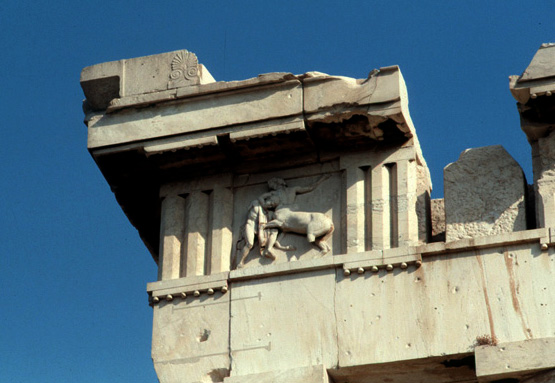![]()
(Russian)
propaganda and agitation
(1935) political propaganda spread largely in works of literature, drama, music, or art.
angle of framing
film technology
the position of the frame in relation to the subject it reveals; also called camera angle.
viewpoint of the shot can influence any of the four meanings inherent in film art: referential meaning 2) explicit meaning, 3) implicit meaning, or 4) symptomatic meaning
(French from Latin meaning craft, ability, capacity to [formulate] form)
about 1611 having or showing shrewdness. (Crafty).
The display of ability to accurately asses a situation or person to one's advantage.
axis of action
(Middle English, from Latin -- axle meaning rotation about a real or imagined point, rod or spindle that pierces a turning wheel and by extension, a sphere.)
An imaginary line that divides something into equal or roughly equal halves, especially in the direction of its greatest length.
about 1611
An imaginary 180 degree line passing through the main actors (action) of the scene from side to side in a film; having the utility that in continuity editing the imaginary line helps to match-up screen direction, position, and temporal relations from one shot to the next.
• see Match on Action: "making it seem to continue uninterrupted."
(Film Art, p. 492.)
![]()
(Latin; commodus, meaning suitable)
convenient, offering plenty of room, ample, sufficient.
(Latin; commoditas, meaning fitness, adaptation, from commodus.)
any useful thing, something bought and sold, any article of commerce, especially staple products.
Commodify --To make a raw material or otherwise commercially extraneous (not something to buy or sell) into a commodity .
Obsolete meaning: personal advantage of convenience.
depth of field
Film
There are planes closest to and farthest from the camera. The depth of field refers to where the focus (clearest or sharpest image is shot) "The closest and farthest planes in front of the camera lens between which everything will be in sharp focus."
An imaginary plane or planes that shift depending upon camera angle and distance of the focal lens.
(Middle English, from Dutch, from old high German)
(13th century)
having a fine edge or point, as in sharp; or showing a quick ardent responsiveness, characteristic of a quick penetrating mind.
Eager, enthusiastic, clear; hence sharp, penetrating; hence revealing, or quick to understand details and their relations.
![]()
Match on Action:
A continuity cut that places two different views of the same action together by splicing together two separate camera frames of the same moment in the movement. Done to make it seem to continue uninterrupted."
(Film Art, p. 492.)
metope
(Greek) [from Meta, meaning next or between and Ope, meaning opening, from metopon, forehead]

any of the spaces between the triglyphs in a Doric frieze, or the (architectural term) facade where the entablature rests on top of the capitals of the columns.
The spaces between triglyphs may be filled with bas relief or left bare, empty of ornamentation. In the above example a bas relief of a Centaur gripping a man in a headlock adorns this metope from the Parthenon in Athens, Greece.
While meta is next whereas mezzo, or meso (mezzanine deck) means middle or in the middle of, midst of, in between.
mickle
(Scottish) [from Middle and Old English, micel- more]
(pre-12th century) great or much (adverb).
Much or more --hence a large amount.
Mise-en-Scene
(French) [to place, placing; or put, putting]
(19th century) putting into a dramatic scene --theatrical productions', scenes in a play form an act based on the script, but the director brings that scene to the stage. Originally the setting or surrounding conditions of the event or action in a play taken over into film.
The full collection of elements in the view of the camera to be photographed. The term signifies "the director's control over what appears in the film frame."
"By controlling the mise-en-scene, [event (what is viewable because of the cinematography) ] the director stages the event, for the camera."
"This technique has the power to transcend normal conceptions of reality..." enabling truly skilled directors "to create a totally imaginary world on film."
pp.118-119.
(Film Art, p. 492.)
predilection
(French from middle Latin, to prefer)
(1742) an established preference for something. An attitude of mind that predisposes one to favor something, a bias based on temperament or experience. Precluding objective judgment.
problematic
(French) problematique [from Greek, problematikos]
not settled, yet to be determined, having the character of a problem, difficult to resolve.
a predicament.
![]()
Terms | Glossary | Word webs | Basic vocabulary | Advanced Vocabulary | Antonyms | Synonyms | obscure words
tendentious, tendentious
(Latin) [from Indo-European, meaning to tend - to stretch or extend] tendency.
characterized by a distinct character or advancing a definite point of view, argumentative, narrow.
voluntarism, voluntary
(Latin)
Generally, characterized by willing or willful action, willing participation in a course of action.
Specifically, in philosophy; a doctrine or system of ideas that holds that reality is ultimately, or basically a matter of will. That means that belief which holds that will is the primary factor in experience.
worldly,
(Latin) world + ly
[from world: the entire people, societies, and institutions of the earth or more generally the universe.
Ambiguously and ambivalently, worldly – more specifically – can refer to a more limited personal view of the above.]
preoccupied with practical, material, or physical manifestations of the world as opposed to ideals, images, morals, and / or spiritual transcendence.
![]()
These buttons below work as navigational aids.
Terms | Glossary | Word webs | Basic vocabulary | Advanced Vocabulary | Antonyms | Synonyms | obscure words

![]()